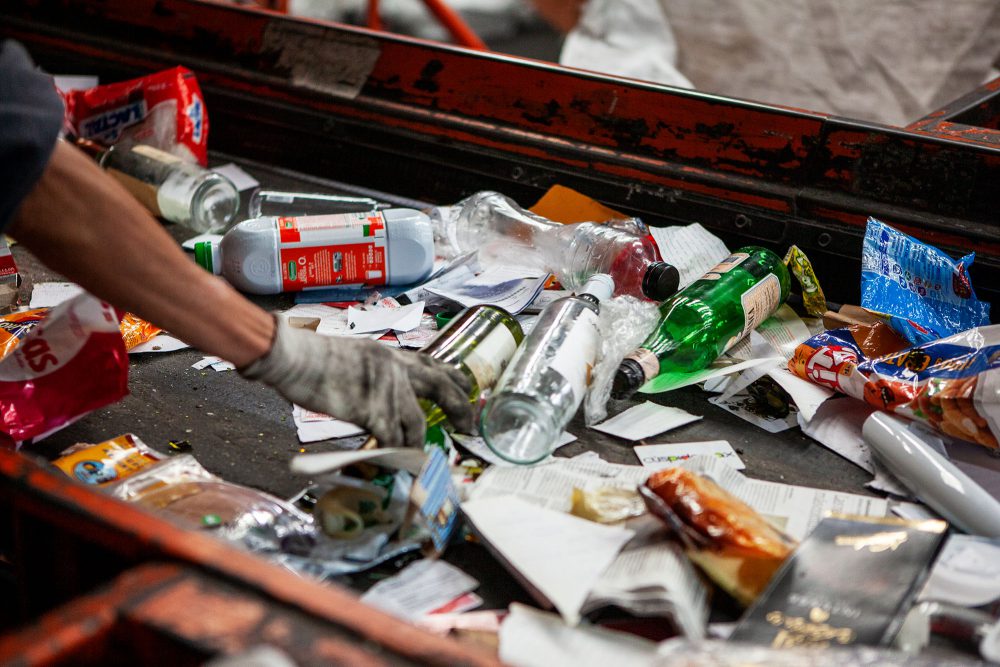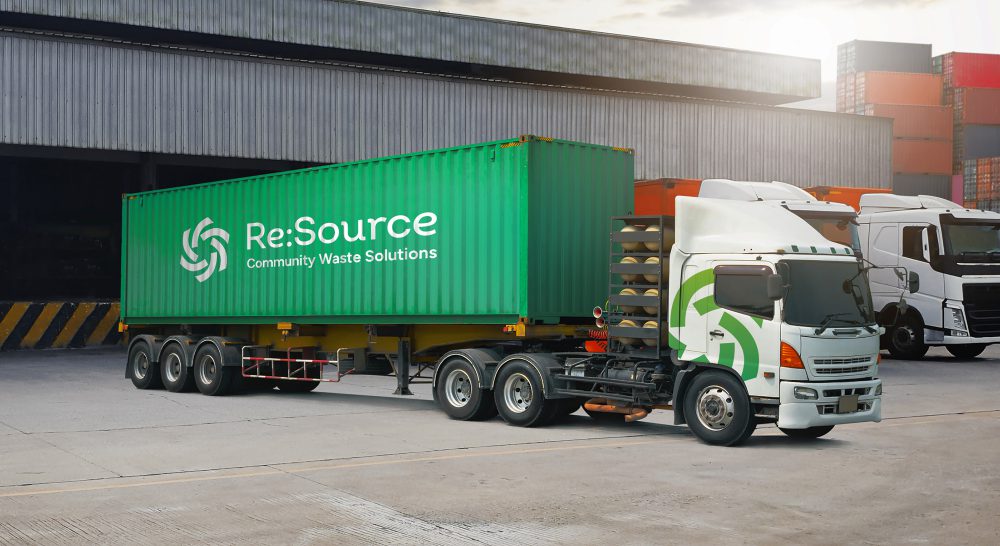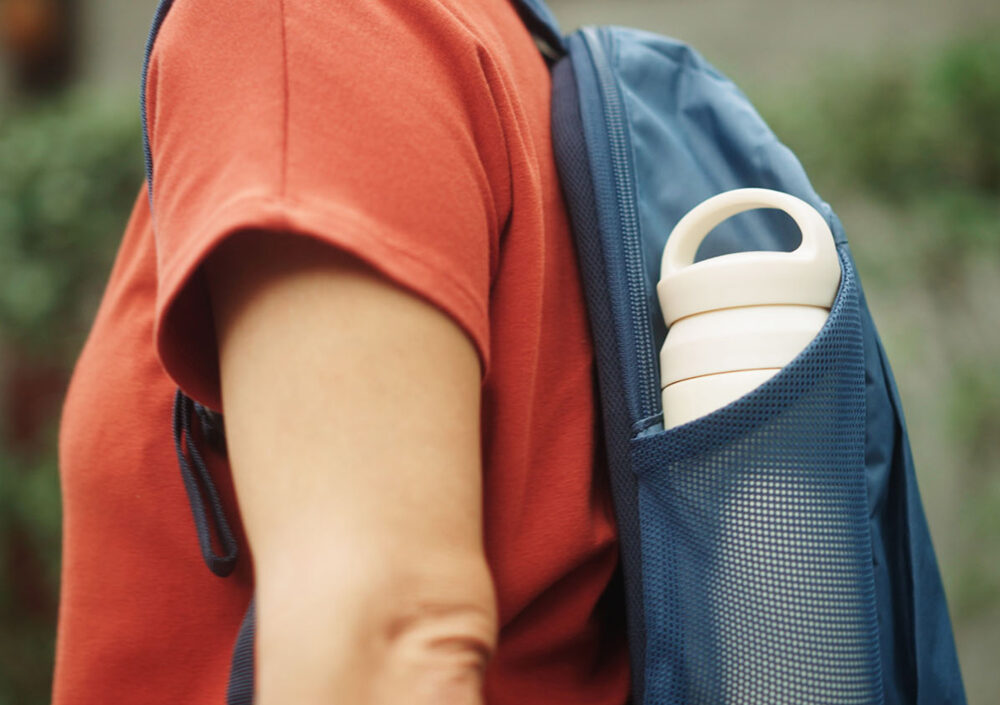Waste, reinvented.
When waste can’t be reduced or reused, the next best option is recycling. We’re helping to ensure everyday waste like cardboard, bottles, and cans avoid the landfill and find a second life.

Supporting Local Sustainability
In addition to acting as a central hub for local waste haulers to bring their loads, Re:Source also receives recycling from area transfer stations and offers its own depot for public drop-off.

Keeping it Efficient
Here, materials are consolidated and prepared for transportation, creating more efficient loads that further reduce waste’s environmental footprint.

Turning Waste Into a Valuable Resource
Recyclables are then transported to DEQ-approved processing facilities where they’re repurposed, reducing demand for new materials and returning to our community as new products.
Why Recycling Matters
Conserves Resources
Recycling saves resources and energy by reducing the need for new materials that would have to be harvested or mined, processed, manufactured, and transported.
Supports Our Economy
The recycling industry provides a domestic source of raw materials, helping to support American manufacturing and creating hundreds of thousands of jobs.
Protects Our Communities
Recycling more materials means less waste in our landfills and incinerators. That means less emissions and more clean, beautiful spaces where we can live and recreate.
Frequently Asked Questions
After you leave your recycling at the curb on collection day, or drop it off at your local recycling depot, it’s taken to Re:Source. We then transport it to final processing facilities for repurposing.
Yes! We accept public drop-off of household waste at our processing facility and recyclables at our recycling depot. Learn more on our Public Drop-Off page.
Accepted materials:
- Household waste
- Cardboard
- Glass bottles and jars
- Grayboard, magazines, mixed scrap paper, newspaper, office paper
- Plastic bottles and jugs
- Tin and aluminum
- Wood
- Concrete
- Metal
Re:Source intakes waste and recycling from construction and demolition sites, curbside collection companies, local transfer stations, and the general public.
This includes:
- Municipal waste
- Organics
- Commingled Recycling (paper, plastic, tin, aluminum)
- Cardboard
- Wood
- Metal
- Concrete
In 2025, we’re projected to recover nearly 20%—close to 75,000 tons—of the waste we process. By 2038, we estimate that number will grow to 100,000 tons.
See Us In Action
Our facility tours and education room offer an interactive, behind-the-scenes look at the future of responsible waste management.
Sustainability
From our processes to our facilities, learn what we’re doing to keep our community and planet cleaner.